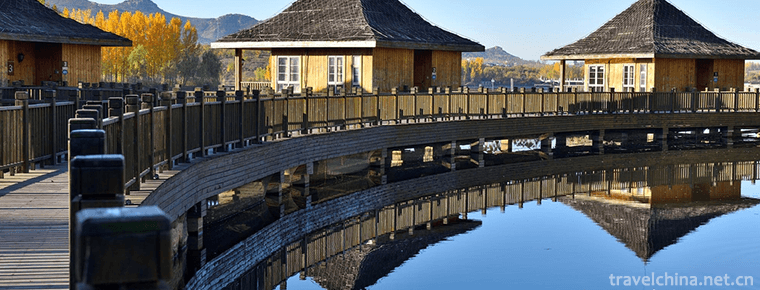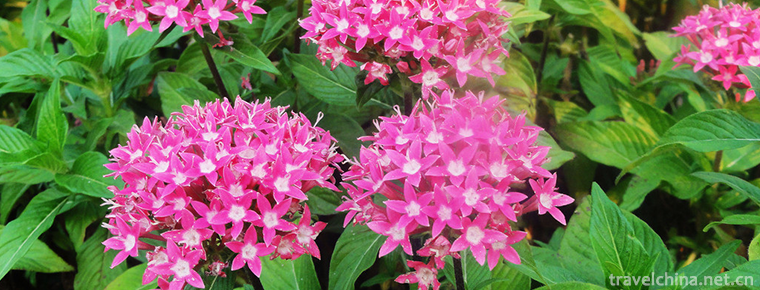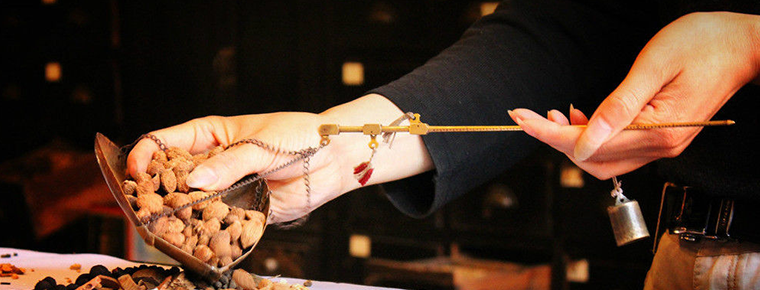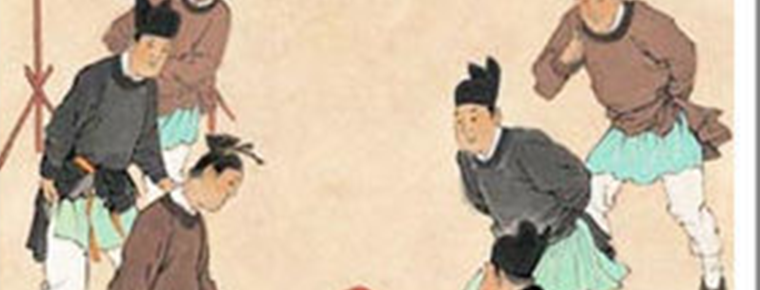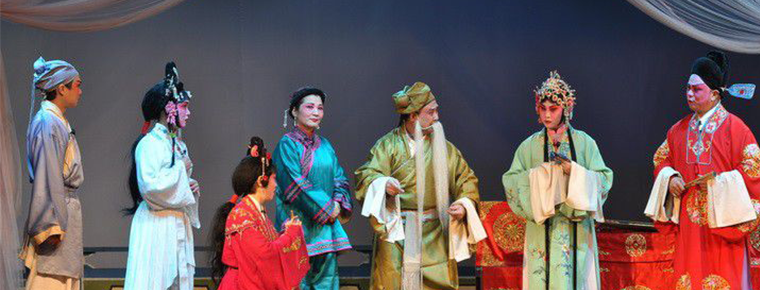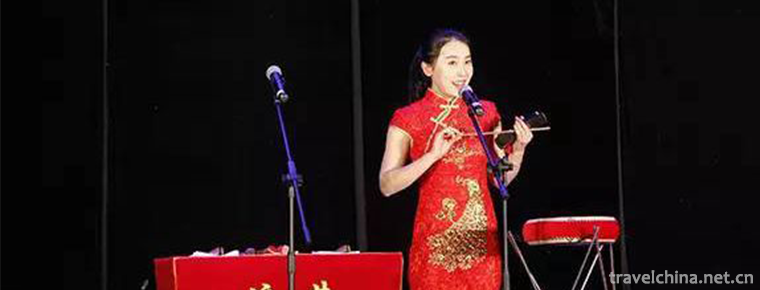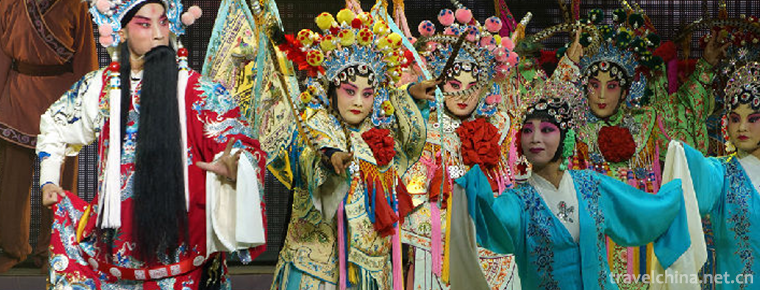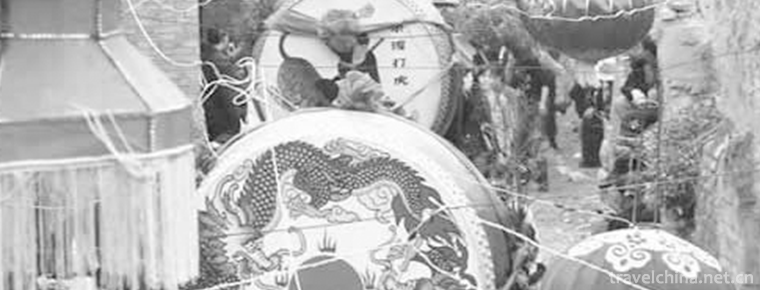Beijing University of Chinese Medicine
Beijing University of Chinese Medicine
Beijing University of Traditional Chinese Medicine is a national key university with traditional Chinese medicine as its main subject. It is directly under the management of the Ministry of Education. It is co-founded by the Ministry of Education, the National Health Commission, the State Administration of Traditional Chinese Medicine and Beijing. Gu Xiaohong, the current Secretary of the Party Committee, and Xu Anlong, the principal of the school.
Beijing University of Traditional Chinese Medicine was founded in 1956. Its predecessor was Beijing College of Traditional Chinese Medicine. It was the earliest institution of higher traditional Chinese medicine approved by the State Council. In 1960, it was designated as the national key university by the central government; in 1993, it was renamed Beijing University of Traditional Chinese Medicine; in 1996, it was selected as the national key construction University of "211 Project"; in 2000, it was merged with Beijing Acupuncture and Moxibustion College of Bone Trauma to form a new Beijing University of Traditional Chinese Medicine; in 2011, it was selected as the national "985 Project Advantage Discipline Innovation Platform". Colleges and universities; in 2017, three disciplines of traditional Chinese medicine, integrated traditional Chinese and Western medicine, and traditional Chinese medicine were selected into the national "double first-class" construction disciplines list; in 2018, they became the chairman of the new teaching steering committee of traditional Chinese medicine and integrated traditional Chinese and Western medicine specialties of the Ministry of Education. The school has three campuses, namely Liangxiang Campus, Heping Street Campus and Wangjing Campus.
In the long-term practice of running a school, adhering to the school motto of "diligent pursuit of learning, generous morality and benefiting students", advocating the idea of "learning from the people, inheriting and innovating", adhering to the purpose of "building people with morality and culture", carrying forward the spirit of "pursuing excellence and stopping at perfection", highlighting its characteristics and strengthening its advantages, it is our country's goal to cultivate high-level innovative traditional Chinese medicine. Education base for medical talents, demonstration base for higher education reform of TCM, research base for knowledge innovation and technology innovation of TCM, medical base for prevention and treatment of major diseases and difficult diseases, humanistic base for promoting excellent traditional culture, and international exchange base for promoting TCM to the world, so as to develop the cause of human health. It has made important contributions to the progress of civilization and has become a well-known institution of higher learning of traditional Chinese medicine, which integrates education, scientific research, medical treatment and the dissemination of traditional Chinese medicine culture.
There are 5233 faculty members and 1478 full-time teachers in the school. Among them, 61.84% have senior professional and technical positions, 84.64% have master's degree or above, and 346 have doctoral tutors. The school has 6 "Chinese doctors", 3 "national famous Chinese doctors", 33 "Capital famous Chinese doctors", 4 "chief scientists of 973" project, 4 "winners of National Outstanding Youth Science Fund project", 3 "specially appointed professors of Yangtze River scholar", 9 "Qihuang scholar", and the national key research and development plan "Modernization of Chinese medicine". There are 7 persons in charge of key special projects, 5 persons in charge of scientific and technological innovation, 1 person in charge of teaching, 1 person in charge of youth project, 3 persons in charge of outstanding youth science fund project of National Natural Science Foundation, 1 person in charge of young scholars of Yangtze River Scholars, and 1 subject of the 7th State Council. There are 3 members of the evaluation group, 7 national candidates for the project, 8 young and middle-aged experts with outstanding contributions, 4 famous teachers in Colleges and universities of traditional Chinese medicine, 134 experts enjoying special government allowance, forming a teaching team mainly composed of famous experts and scholars at home and abroad and influential young and middle-aged professors at home.
The school adheres to the fundamental task of cultivating people with moral integrity, pays attention to drawing nutrition from the rich soil of Chinese culture and traditional Chinese medicine culture, runs through the concept of "cultural person" throughout the work of educating people, and trains socialist builders and successors with all-round development of morality, intelligence, physical fitness, beauty and labor. There are 12 602 full-time students, including 4504 graduate students, 7536 undergraduate students and 562 international students. There are 1864 continuing education students and 17 859 distance education students.
The school is committed to building a talent training system with high-level education for the future. At present, it has Chinese medicine, traditional Chinese medicine, pharmacy, acupuncture and massage, rehabilitation therapy, public utilities management (health), pharmacy management, information management and information system, nursing, English (medicine, Chinese medicine, Chinese medicine). International Pharmaceutical Dissemination, Law (Medical and Health) 12 undergraduate enrollment majors.
The school is one of the first units to establish doctoral degree and post-doctoral research mobile stations in Chinese medicine colleges and universities in China. It has three post-doctoral research mobile stations, namely, TCM, TCM and the combination of traditional Chinese and Western medicine. It has three First-Level Discipline doctoral degree authorization, including 42 second-level discipline doctoral degree granting points, 7 First-Level Discipline master degree authorization, including 45 master degree granting points. The school has two national key disciplines, including 15 secondary disciplines, 48 key disciplines of the State Administration of Traditional Chinese Medicine, 2 first-level disciplines in Beijing and 8 second-level disciplines in Beijing.
The school has three national teaching teams, one national experimental teaching demonstration center and three National University Students'off-campus practical education bases. The school has won one first prize (participated in the completion), two second prizes, eight first prizes and ten second prizes of the Beijing Teaching Achievement Award.
The school has 50 scientific research bases at or above the provincial and ministerial levels. Among them, there are 2 national-level international scientific and technological cooperation bases, 3 key laboratories of the Ministry of Education, 2 engineering research centers of the Ministry of Education, 2 academic innovation and Intellectual Introduction bases of colleges and universities, 2 national clinical research bases of Chinese medicine, 14 third-level laboratories of the State Administration of Traditional Chinese Medicine, 10 key research rooms of the State Administration of Traditional Chinese Medicine and Taiwan of the State Council. There are 1 Taiwan Research Base of Traditional Chinese Medicine, 6 Beijing Key Laboratories, 1 Engineering Research Center of Beijing Education Commission, 6 Beijing International Science and Technology Cooperation Base and 1 Beijing Research Base of Traditional Chinese Medicine Culture. The school has won 8 second-class prizes for national scientific and technological progress, and has undertaken more than 770 key projects such as "973 Plan" of the Ministry of Science and Technology, support plan, major special projects and natural fund. As the only achievement of TCM, the research of TCM constitution identification has been incorporated into the National Basic Public Health Service Standard, and the TCM Diagnosis and Therapeutic Evaluation Standard for Stroke has become the standard of TCM industry and national standard.
The school currently has teaching units such as College of Traditional Chinese Medicine, College of Traditional Chinese Medicine, College of Life Sciences, Acupuncture and Massage, School of Management, Nursing, Humanities, Marxist College, National College, International College, Taiwanese, Hong Kong and Macao Department of Traditional Chinese Medicine, College of Continuing Education, College of Distance Education and Department of Physical Education. At present, there are several research institutes at the University level, such as Beijing Institute of Traditional Chinese Medicine, National Institute of Physical Fitness and Preventive Treatment of Diseases of Beijing University of Traditional Chinese Medicine, National Institute of Traditional Chinese Medicine Development and Strategy of Beijing University of Traditional Chinese Medicine, and Institute of Traditional Chinese Medicine Encephalopathy of Beijing University of Traditional Chinese Medicine.
The school has three affiliated hospitals directly under the First Clinical Medical College (Dongzhimen Hospital of Beijing University of Traditional Chinese Medicine), the Second Clinical Medical College (Oriental Hospital of Beijing University of Traditional Chinese Medicine), and the Third Clinical Medical College (Third Affiliated Hospital of Beijing University of Traditional Chinese Medicine) and the Chinese Medicine Outpatient Department of the Medical College. In recent years, following the principle of "guiding the downward focus of medical and health work and sinking resources", the school has explored a new mode of cooperation and co-construction, established a regional landmark high-quality service platform for traditional Chinese medicine, established the Fourth Clinical Medical College (Zaozhuang Hospital of Beijing University of Traditional Chinese Medicine), and the Fifth Clinical Medical College (Shenzhen of Beijing University of Traditional Chinese Medicine). Shenzhen Hospital, Sixth Clinical Medical College (Fangshan Hospital, Beijing University of Traditional Chinese Medicine), Seventh Clinical Medical College (Sun Simiao Hospital, Beijing University of Traditional Chinese Medicine) and Eighth Clinical Medical College (Xiamen Hospital, Beijing University of Traditional Chinese Medicine). There are also 16 clinical teaching bases, such as Sino-Japanese Friendship Hospital, Guang'anmen Hospital, Xiyuan Hospital, Wangjing Hospital and Beijing Traditional Chinese Medicine Hospital, which undertake the clinical teaching, probation and internship of the students in the whole school. The school has 17 key clinical specialties and 44 key specialties of the State Administration of Traditional Chinese Medicine. There are 6 studios for the inheritance of Chinese medicine masters, 3 studios for the inheritance of famous Chinese medicine nationwide, 2 studios for the inheritance of Chinese medicine academic schools and 40 studios for the inheritance of famous Chinese medicine experts nationwide, and 44 studios for the "Fire and Fire Inheritance 3+3 Project" in Beijing.
Since its inception, the school has become the earliest university of traditional Chinese medicine in New China to receive foreign students to study Chinese medicine. Up to now, it has trained more than 20,000 Chinese medicine professionals for 94 countries and regions, and has established cooperative relations with 118 well-known universities and research institutions in 31 countries and regions. In 1996, in cooperation with the University of Middlesas in the United Kingdom, China established the first project of independently awarding bachelor's degree in medicine in foreign universities. It took the lead in offering undergraduate education of TCM specialty in the top 50 universities in the world, and cooperated with Nanyang Polytechnic University of Singapore in offering double bachelor's degree education of TCM-biology. The first Master's Degree Program in Traditional Chinese Medicine approved by the European Union was established in cooperation with the Medical College of the University of Barcelona, Spain. It is the first doctoral degree program and master's degree program for Western doctors to learn Chinese medicine in English, and the first bachelor's degree program for Chinese medicine in English. In 2019, in cooperation with the National Children's Hospital of the United States, we will continue to promote the integration and development of traditional medicine and modern medicine by building pediatric clinics with Chinese and Western medicine characteristics in the United States.
In 1991, the school established the Questien's Hospital of Traditional Chinese Medicine of Beijing University of Traditional Chinese Medicine in Germany, which set a precedent for Chinese universities to run hospitals with Chinese characteristics abroad, and became a model for Chinese medicine to enter the world. In 2012, the Confucius Institute of Traditional Chinese Medicine was established in cooperation with the Hyogo Medical University, a Japanese school. The course of Traditional Chinese Medicine was integrated into the modern medical education system, and the organic integration of cultural exchange and professional education was realized. The internationalization of the school has continuously explored and innovated, and created the "Overseas Chinese Medicine Center" which integrates medical treatment, education, scientific research and cultural dissemination. It has provided an effective "North Chinese Medicine Program" for the overseas development of Chinese medicine. It has successively established the Australian Chinese Medicine Center of Beijing University of Traditional Chinese Medicine, the Russian Traditional Chinese Medicine Center and the United States of America. Traditional Chinese Medicine Center and China-Germany Traditional Chinese Medicine Center (Quiztin) have made traditional Chinese medicine into a bright business card with Chinese and foreign cultural exchanges and people's hearts connected. The Russian Traditional Chinese Medicine Center has successfully acquired the qualification of medical institutions in the Russian Federation, becoming the first hospital with Chinese characteristics to be incorporated into the national medical insurance system in Russia. The Australian Centre for Traditional Chinese Medicine (ACTCM) has actively promoted the education of Western doctors in traditional Chinese medicine. Two Master of Traditional Chinese Medicine students have successfully graduated. Aiming at the characteristics and frontiers of traditional Chinese medicine, the American Center for Traditional Chinese Medicine has successfully held many high-end academic conferences on cancer, epilepsy, pediatric diseases, reproductive diseases and so on. It is becoming an important platform for academic exchanges and dialogues between China and the United States in the field of medicine.
The school sponsors the national academic journals "Journal of Beijing University of Traditional Chinese Medicine", "Modern Clinical Chinese Medicine", "Chinese Medicine Education" and "Journal of Chinese Medicine Science" (English), which are important places for academic exchanges of traditional Chinese medicine. The Journal of Beijing University of Traditional Chinese Medicine has been awarded the title of "100 Chinese Outstanding Academic Journals" for five consecutive times.
Entering a new era, the school will take Xi Jinping's socialist thought with Chinese characteristics in the new era as its guide, never forget its original intention, keep in mind its mission, adhere to the socialist orientation of running schools, implement the fundamental task of cultivating people by virtue, and make unremitting efforts to build a world-class university of traditional Chinese medicine in an all-round way!
(Data as of March 2019)


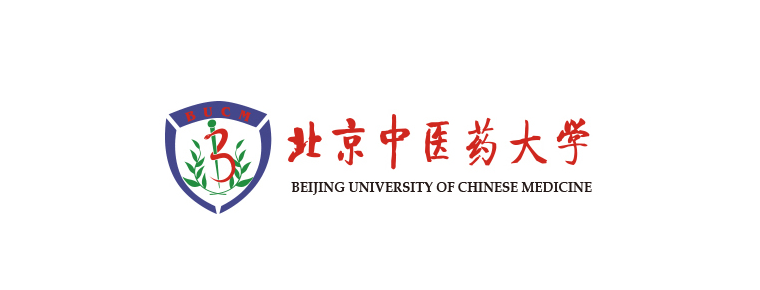
-
Libo Karst
Maolan National Karst Forest Nature Reserve, located in the southern suburb of Libo County, is a well-preserved natural forest vegetation in the karst landform of the central .
Views: 156 Time 2019-01-29 -
Eco health Tourism Resort in Sishui Shandong Province
"Shandong Sishui Violent Eco-health Tourism Resort" is a pioneer in China, which combines superior ecological environment, long-standing health culture and modern leisure and vacation indust.
Views: 217 Time 2019-02-13 -
Xishuangbanna Tropical Flower Garden
Xishuangbanna Tropical Flower Garden is located in Yunnan Institute of Tropical Crop Sciences, Jinghong City, Xishuangbanna Prefecture, Yunnan Province. It covers an area of 80 hectares and is one of .
Views: 148 Time 2019-02-25 -
Traditional medicine
Traditional medicine, a list item of intangible cultural heritage. Article 21 of the Constitution stipulates that the State shall develop medical and health undertakings, modern medicine and tradition.
Views: 276 Time 2019-04-21 -
ancient game of kicking a ball
Cuju, also known as "Biju", "Cuju", "Cuju", "Cuyun", "Cuyun", "building a ball" and "kicking a round", has the meaning of "Cu.
Views: 157 Time 2019-04-22 -
Jingzhou Huagu Opera
Jingzhou Huagu Opera, a local traditional drama in Hubei Province, is one of the national intangible cultural heritage..
Views: 153 Time 2019-05-08 -
monologue storytelling accompanied by drumbeats
Plum blossom drum, born in the middle of the Qing Dynasty, originated in Beijing, is popular in Beijing and Tianjin. Before liberation, the sons and daughters of Beijing Banner People liked to sing me.
Views: 256 Time 2019-06-03 -
a kind of Shanxi opera
Shangdang Bangzi is one of the four Bangzi in Shanxi Province. It is popular in the two cities of Shanxi Province, namely, the Minister of southeastern Shanxi Province and Jincheng City (formerly know.
Views: 163 Time 2019-06-13 -
Yucun drum car
Yucun Drum Car has a history of more than 2,700 years. It has recovered after a long history of ups and downs. Drum truck is a combination of drum and car, which evolved from the ancient chariot. As a.
Views: 92 Time 2019-06-28 -
Jiajinshan National Forest Park
Xiaojin County of jiajinshan National Forest Park is located at the northern foot of Jiajin mountain in the east of Xiaojin County, Aba Tibetan and Qiang Autonomous Prefecture, Sichuan Province. .
Views: 319 Time 2020-11-07 -
Kangding yak meat
There are many wild medicines such as Fritillaria, Cordyceps and so on growing in these areas over 3500 meters. Yaks often eat these herbs, and their meat is incomparably delicious. After being killed, they can be roasted in brown sauce, stewed or dried in the cold.
Views: 200 Time 2020-12-06 -
Deyang Education
By the end of 2018, Deyang had 856 schools, with 33000 full-time teachers and 543000 students. Among them, 339 primary schools enroll 32000 students and 185000 students; 123 junior high schools, 28000 students and 80000 students; 23 senior high schools.
Views: 333 Time 2020-12-14

